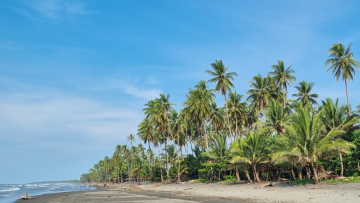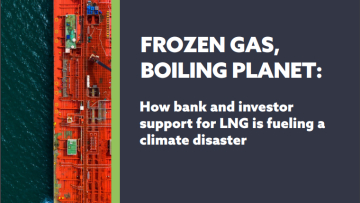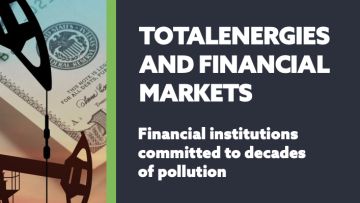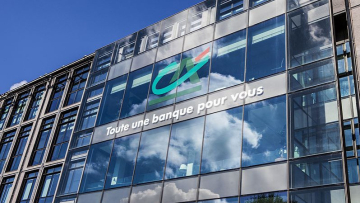
Project – Active
This profile is actively maintainedBankTrack, Centre for Environmental Law and Community Rights (CELCOR), Friends of the Earth US, Jubilee Australia Research Centre, Market Forces & Reclaim Finance
Peter Bosip
Executive Director of the PNG Centre for Environmental Land and Community Rights Inc. (CELCOR)
pbosip@celcor.org
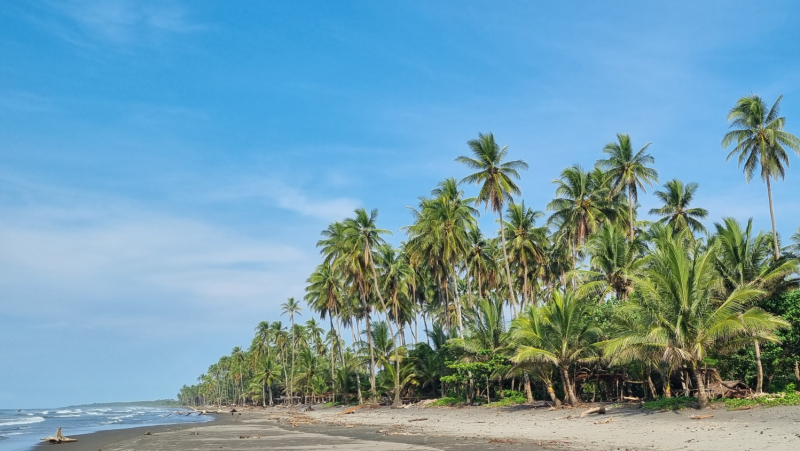
Project – Active
This profile is actively maintainedBankTrack, Centre for Environmental Law and Community Rights (CELCOR), Friends of the Earth US, Jubilee Australia Research Centre, Market Forces & Reclaim Finance
Peter Bosip
Executive Director of the PNG Centre for Environmental Land and Community Rights Inc. (CELCOR)
pbosip@celcor.org
Why this profile?
Papua New Guinean communities are facing dire climate impacts. Papua LNG poses economic, climate, human rights and biodiversity concerns. Fossil fuel companies should be funding loss and damage, not driving harmful projects. Research shows PNG can meet its own SDG energy targets without any new fossil fuels.
What must happen
Banks should not finance the Papua LNG project. Existing financiers of TotalEnergies, ExxonMobil and Santos must press them to cancel the project. The PNG government should not take on millions, if not billions, in debt to buy into the project and undermine sustainable development for future generations. Foreign governments should not use taxpayers dollars to finance the project via export credit agencies.
| Sectors | Oil and Gas Extraction , LNG Terminal |
| Status |
Planning
Design
Agreement
Construction
Operation
Closure
Decommission
|
| Website | https://papualng.com.pg/ |
Papua LNG is a fossil gas project led by TotalEnergies, with co-venturers ExxonMobil and Santos, located in Gulf province in Papua New Guinea. The project will extract fossil gas from nine production wells at two new onshore fossil gasfields, Elk and Antelope in the highlands of Gulf Province. It will be processed in a new fossil gas processing plant. The project will then establish a 320 kilometre pipeline extension over land and offshore to an existing LNG processing facility at Caution Bay in Central province. The project will build four new liquefaction units (“LNG trains”) from the pipeline to the Caution Bay facility. The project states it plans to export around 5.6 million tonnes of LNG a year. Total emissions from LNG extracted by Papua LNG (scope 3 emissions) have been estimated at 220 million tonnes of carbon dioxide equivalent (MTCO2e) over the project’s lifespan. The project is currently at Front-End Engineering Design (FEED) stage, awaiting a Final Investment Decision (FID) and final permits. According to the project’s website, FID is expected in early 2024, with production estimated to begin in early 2028.
Impact on human rights and communities
Failure to clearly show that Free, Prior and Informed Consent has been secured PNG organisations have raised concerns about whether communities have received accurate information about the project’s environmental impacts or climate impacts.
The Papua LNG website does not include copies of all the information resources provided to communities or other stakeholders, nor geolocated maps (for example, see this website map). Without this, banks are unable to take further steps to assess the quality, extent and accuracy of public information or how this aligns with realities at community level. This prevents sufficient due diligence on even the “informed” aspect of Free, Prior and Informed Consent.
As recently as September 2023, the Elena Mai Lavi Council of Chiefs in Gulf province representing 600 clans reported to media that landowners had closed waterways for 2 weeks over various concerns related to Papua LNG.
In a public forum in Port Moresby in early 2023, TotalEnergies stated to CELCOR that it could not provide detailed maps of the project. In project documents, TotalEnergies discusses communities’ legal rights under PNG law and at times reference FPIC. However, neither its EIS nor website show what, if any, information materials have been provided to communities on their right to say ‘no’ to the project or make consent contingent on certain conditions - in line with Indigenous Peoples’ rights under international human rights law, the UN Guiding Principles on Business and Human Rights, the OECD Guidelines on Multinational Enterprises or IFC Performance Standard 7. While the project says it meets the Equator Principles and IFC standards – which require FPIC – it does not show this. Its listed ‘commitments’ on its website do not include human rights.
Indigenous rights violations related to FPIC in PNG are an extreme risk. PNG has widely documented tenure scandals in agribusiness, mining and the earlier PNG LNG project faces systemic concerns on land rights (see also here). As documented by various sources, ExxonMobil’s pre-existing fossil gas operations within PNG have faced allegations of grossly overstating economic benefits and failing to respect landowner rights, and been associated with increased local conflict and instances of police brutality (see also here). Multiple consultants who worked on PNG LNG have also worked on Papua LNG, in areas such as stakeholder engagement or areas related to IFC performance standards.
It appears extremely unlikely that local communities have been informed about the existence, or nature, of current legal cases against TotalEnergies, ExxonMobil or Santos in other countries related to environmental or human rights concerns. Arguably, access to this information about complaints or grievances against the companies could influence how communities assess the companies’ practices and trustworthiness – without which, this raises a question of whether consent can be ‘informed’ or not. TotalEnergies is facing multiple legal actions over its climate claims and projects, ExxonMobil is currently facing legal action from multiple US governments alleging climate misinformation. Santos has a long history of environmental and social damage due to unsafe business practices, including disastrous offshore oil spills and gas leaks, pursuing projects without the consent of Traditional Owners in Australia (including Tiwi Islanders, Larrakia and Gomeroi peoples). Traditional owners have issued complaints to 12 international banks and three export credit agencies financing the Barossa gas project alleging they had breached their human rights commitments, including on FPIC.
Risking a coercive environment where people cannot speak freely A 2019 impact assessment commissioned by TotalEnergies examining ‘Gender, security and conflict’ notes that researchers travelled with either Total PNG security staff or “a member of the reserve police stationed to work for TEP [TotalEnergies PNG] PNG” ) (p.30-31, p.41). This apparent close relationship between state security forces and the company may contribute to a coercive environment, where communities may feel less able to speak out against a project or raise concerns. Impact assessment researchers noted that there was insufficient consultation time to undertake community meetings for their research, as communities had many outstanding questions on a variety of facets of the project.
There are additional concerns regarding the head of the PNG Catholic Church sitting on a company advisory panel, wearing company-branded outfits and making public statements in support of the project on its website. This could be perceived as coercive, as followers of the Church may see opposing or raising concerns about the project as going against their faith. Other PNG churches - the Unitarian Church and the Evangelical Lutheran Church - have endorsed an international Fossil Fuel Non-Proliferation Treaty via their membership of the Pacific Council of Churches. The Vatican has also repeatedly called for catholic institutions to divest from fossil fuels.
Highly publicised company funding to local health services and clinics may also be seen as coercive, as if the company withdraws from the area this could be seen as threatening access to medical care, discouraging people from speaking out about any concerns. The company could address this by making it clear that such funding comes with "no strings attached" for a set period, and that funding for medical care is separate from project consent.
More generally, the huge power imbalance between rural and often isolated communities in Gulf Province, and a project backed by the national government and three of the world’s biggest fossil fuel companies, does not appear to have been substantively addressed in the project design. Do people have access to independent advice and expertise on a range of aspects of the project? Is there robust public debate about the project or the companies involved? Do people feel that they have the power to assert their rights or feel that the project is inevitable because of the power of those involved?
Lack of research into health impacts There does not appear to have been any analysis by experts independent of the project – of the short, medium or long-term health risks and impacts of Papua LNG to local communities. International research has found that oil and gas projects are linked to a range of health risks – including exposure to harmful chemicals, increased rates of childhood asthma, cancer and rates of hospitalisation. This can also bring associated costs, such as additional burden for the health system or impacts to livelihoods.
Impact on climate
Papua LNG is in Gulf Province, a province whose coastal areas have already been hard hit by climate change. In Orokolo Bay, some families have already had to move multiple times to escape increasingly violent storms.
Over its lifetime, fossil gas extracted from this one project is anticipated to release the same amount of emissions – estimated at 220 million tonnes of carbon dioxide equivalent (MTCO2e) – that it takes the entire population of Bangladesh (169 million people) one year to emit. The project also contravenes PNG commitments to climate action on 1.5C. International research shows that fossil gas projects release methane – which can have up to 86 times more impact than carbon dioxide at trapping heat in the atmosphere over the next 20 years.
The project is also exposed to greenwashing risks. The Intergovernmental Panel on Climate Change and International Energy Agency clearly state that to keep global temperature rise to within 1.5°C requires no new oil and gas field expansion. Papua LNG uses confusing data and terminology on ‘carbon capture storage’ (also here) or ‘biodiversity offsets’ to give the appearance of reduced climate and biodiversity risk – despite contravening this international science and energy policy advice. IEEFA points out that the project fails to report over 90% of its climate impacts – which will come from burning the fossil gas extracted (scope 3 emissions). This also risks giving a misleading picture of climate impacts.
It is the poorest, most marginalised communities who have done least to contribute to the climate crisis who are facing the greatest burden globally. Climate injustice is also a major driver of gender inequality. Implicit in the formation of this project is that those communities should be expected to shoulder additional burdens from climate impacts – in order for faraway consumers and companies to benefit. It also embodies intergenerational inequality with decisions made today about fossil fuels impacting on generations to come.
Impact on nature and environment
Papua New Guinea is one of the most biodiverse places on the planet. It is home to the world’s third largest contiguous tropical rainforest, its waters exist in part of the biodiversity-rich Coral Triangle and it is home to the world’s largest diversity of mangroves. Scientists estimate that more than half of the plants and animals found in Papua New Guinea have yet to be named by external science. It is home to an estimated 150,000 species of insects, 314 species of freshwater fish, over 700 species of birds and hundreds of mammal species – many of which are endemic, as well as iconic species like the tree kangaroo.
To date, there does not appear to be any analysis by independent experts (not contracted by the company) of the project’s Environmental Impact Statement. The full upstream EIS is not publicly available on the Papua LNG website. The Papua LNG project website does not include detailed maps outlining the project’s location. On November 30th the PNG government announced a 30-day public consultation for a downstream EIS. As of 7th November, the draft EIS does not appear to be online or available via the Papua LNG website.
The project will involve land clearing, river dredging and various other risks such as seabed disturbance from an offshore pipeline, pollution, and impacts on marine life. According to the upstream EIS, it also takes place in sites which include 49 species of flora and fauna new to science and 16 species that have been scientifically undescribed until recently – raising questions as to how plausible it is to accurately assess the project’s impacts. This includes several species of begonia and syzygium, frogs and damselflies, and one species of gecko. It also includes IUCN critically endangered species such as the timber tree (Diospuros lolinopris), the mangrove tree (Bruguiera hainesii) and Bulmer’s Fruit Bat.
The Papua LNG website refers to meeting IFC Performance Standards on biodiversity and claims that the project is of net biodiversity benefit, i.e. that local biodiversity will be better off because of a massive fossil gas extraction project. This contravenes basic common sense. As discussed by the ‘independent’ advisory panel, the project’s claims that it will contribute to ‘net biodiversity’ appear to rely on biodiversity offsets. Internationally, the Global Forest Coalition is highly critical of biodiversity offsets – including that biodiversity is highly localised and destroying nature in one specific area cannot be ‘offset’ by activity elsewhere.
It appears that approvals processes under PNG law via the Conservation and Environmental Protection Authority do not require any independent government-commissioned research or modelling. It is based on information supplied by the project and its consultants.
Other impacts
Economic impacts
The project presents a range of economic risks. The fossil gas from the project is intended for export, not local use. According to the IMF, the PNG government is already described as in ‘high’ debt distress, and it’s unclear where it would find the USD millions, if not billions, to buy into the project. This far exceeds the K400 million (USD $110 million) needed to meet the country’s extremely ambitious 2030 energy targets via renewable energies - as outlined in government and NGO reports. Various legal amendments have been passed in PNG to reduce Papua LNG’s taxes and there are limitations on policy options such as windfall taxes. ExxonMobil and Santos are part of an earlier project, PNG LNG, whose economic benefits were grossly exaggerated. This correlated with PNG entering into far greater debt, after the project, than before. IEEFA has also analysed Papua LNG as posing a range of financial risks to investors – which is also relevant to the PNG government owned Kumul that intends to buy as share in the project. As of September 2023, the project has failed to secure purchase contracts.
More generally, climate change – to which this project will contribute – is already affecting PNG’s economy with worsening impacts in future. Asian Development Bank climate projections have estimated that by 2100 PNG could face an annual 15.2% loss in GDP. The government has stated that the damage to water resources of a projected 2-4 degree Celsius rise in temperature is estimated to cause economic losses of USD$1 billion a year.
According to IJGlobal, Japanese bank MUFG is the financial advisor for the project and is currently sounding out potential financing from export credit agencies or commercial banks.
Aside from MUFG, the following international banks are likely to be approached to support the project as they are among the biggest bank supporters of TotalEnergies: Barclays, Citi, JPMorgan Chase, Goldman Sachs, Morgan Stanley, Deutsche Bank, Bank of America, SMBC Group, RBC and UBS.
As of February 2025, 13 key financial institutions – including 12 that had supported ExxonMobil’s PNG LNG project – have already indicated that they will not finance the Papua LNG project, according to DefundTotalEnergies. These include ANZ, BNP Paribas, Bank of South Pacific, CIC, Commonwealth Bank of Australia, Crédit Agricole, Intesa Sanpaolo, National Australia Bank, Natixis / BPCE Group, Société Générale, UniCredit Group and Westpac.
But 12 other financial institutions who had provided financing for the PNG LNG project have yet to make a statement.
The US export credit agency, US EXIM bank, has been approached to finance the project. It has disclosed the project as a ‘pending’ Category A transaction, but not yet approved and with no available Environmental and Social Impact Assessment.
It is expected that export credit agencies that financed PNG LNG may also be approached.
Project sponsors
Santos
AustraliaOther companies
Kumul Petroleum Holdings
Papua New GuineaOur Resources - Their Profit
It is time for Papua New Guinea to stop relying on destructive large-scale extractive industries and build an indigenous economy based around our land and our people. Projects like the ExxonMobil LNG don't benefit our people or our economy as the revenues and profits are kept overseas.
Video links
Purari Development Association raises various issues with concerns about agreement including questions of conformity with the Oil & Gas Act, lacks authentic and inclusive consultation and a ‘dictatorial’ approach in favour of the developer.
2024
2024-02-26 00:00:00 | French banks turn their backs on TotalEnergies in Papua New Guinea
Crédit Agricole had declared it won't be directly financing Papua LNG, despite being TotalEnergies' financial advisor on the project. French banks BNP Paribas, BPCE/Natixis, Société Générale, and CIC/Crédit Mutuel, as well as Italy's Unicredit and Australia’s Commonwealth Bank of Australia and Westpac have already turned their backs on financing the project, despite them all being financiers on another controversial gas megaproject in Papua New Guinea, PNG LNG.
2023
2023-09-30 00:00:00 | Fitch analysis notes that in 2023-2024 PNG will account for 52% of the Santos group’s earnings before interest, tax, depreciations and amortisation
2023-06-30 00:00:00 | JXNippon buy a 2.58% stake in the project
2023-03-31 00:00:00 | Papua LNG launches its FEED - Front End Engineering and Design stage.
2022
2022-09-30 00:00:00 | State-owned Kumul Petroleum expresses interest in buying an additional 5% stake in PNG LNG
However, the deal will be delayed several times until a year later and then later reduced to 2.6% - raising questions about how Kumul will finance a buy-in to Papua LNG.



